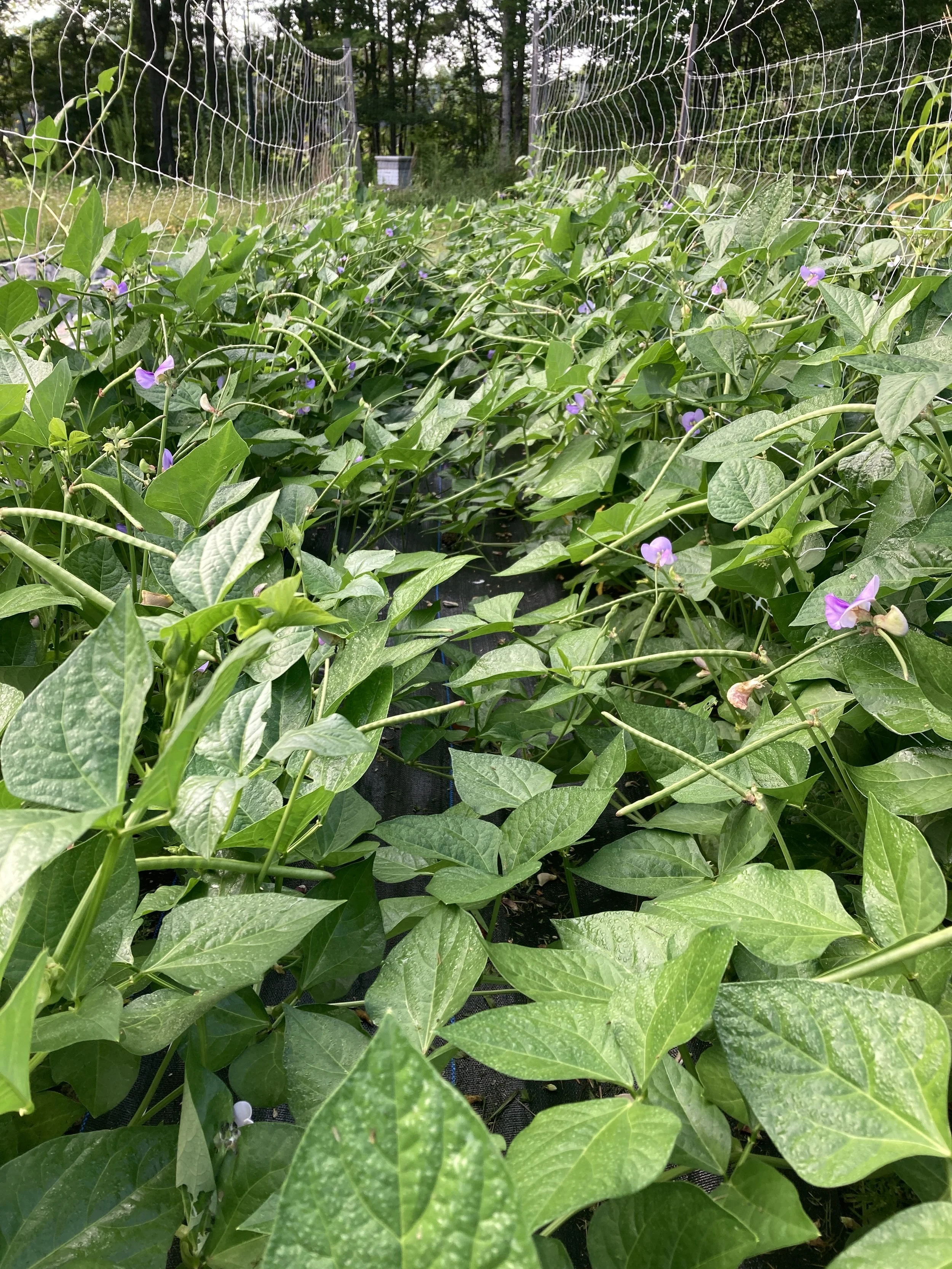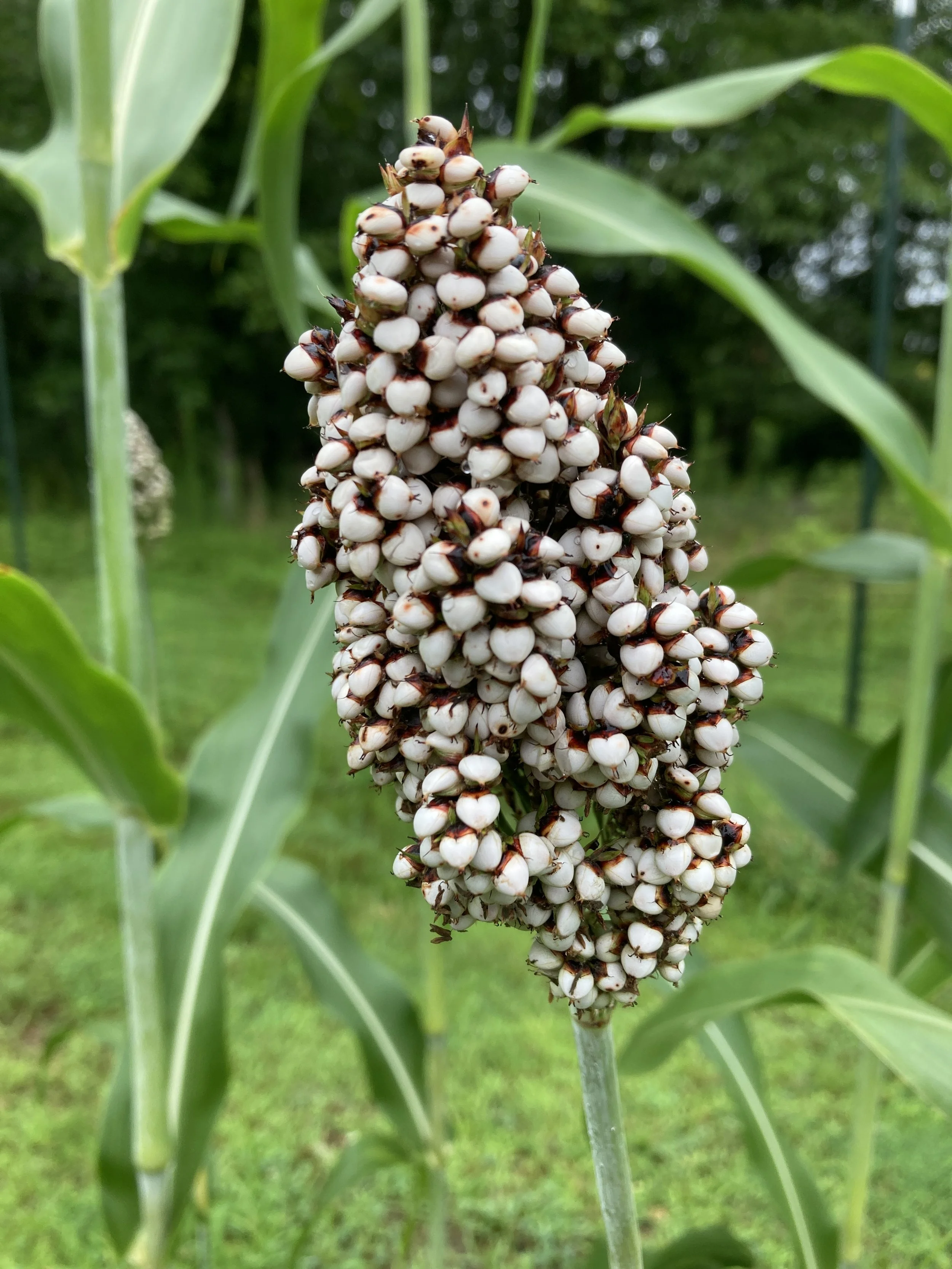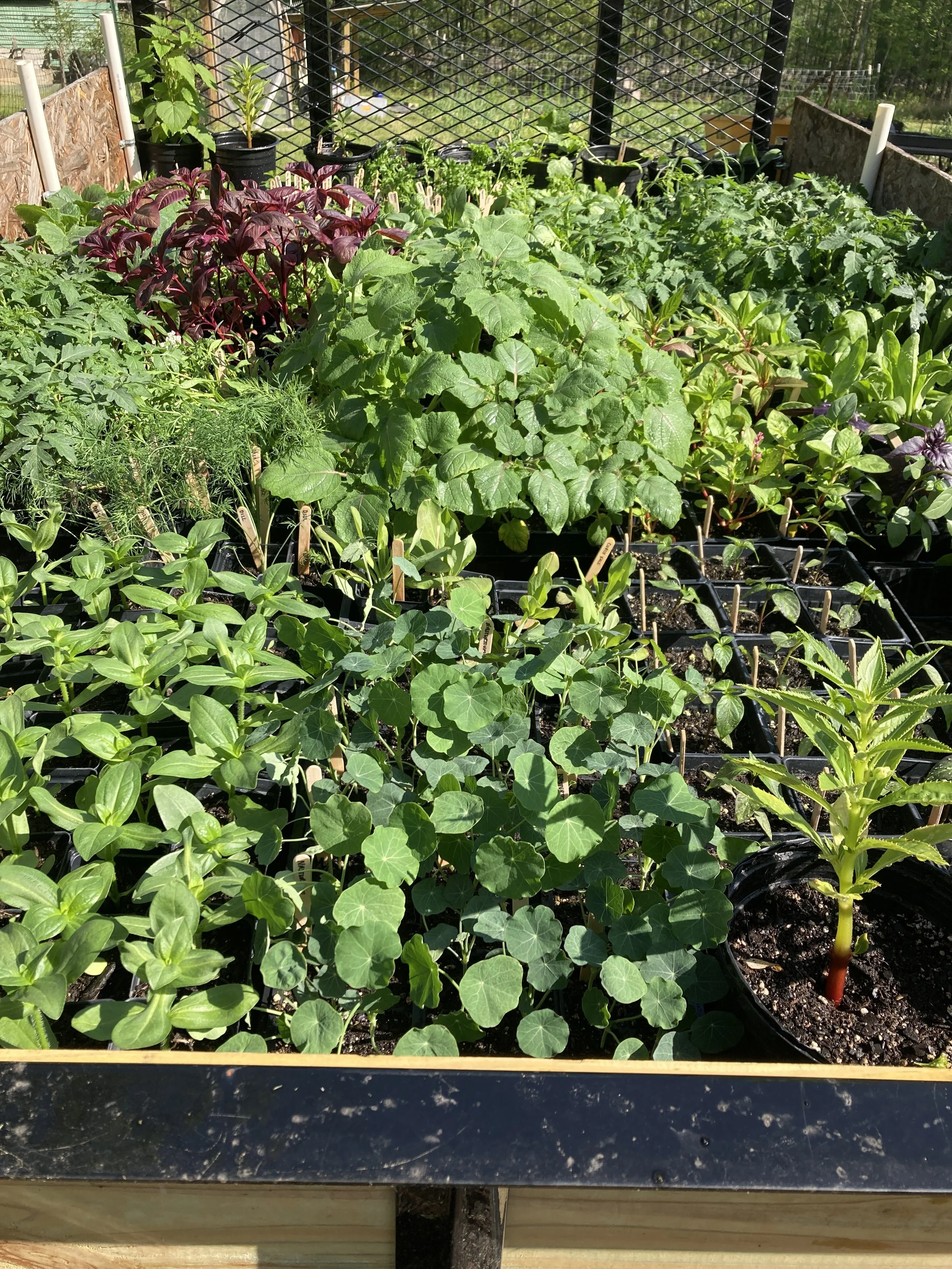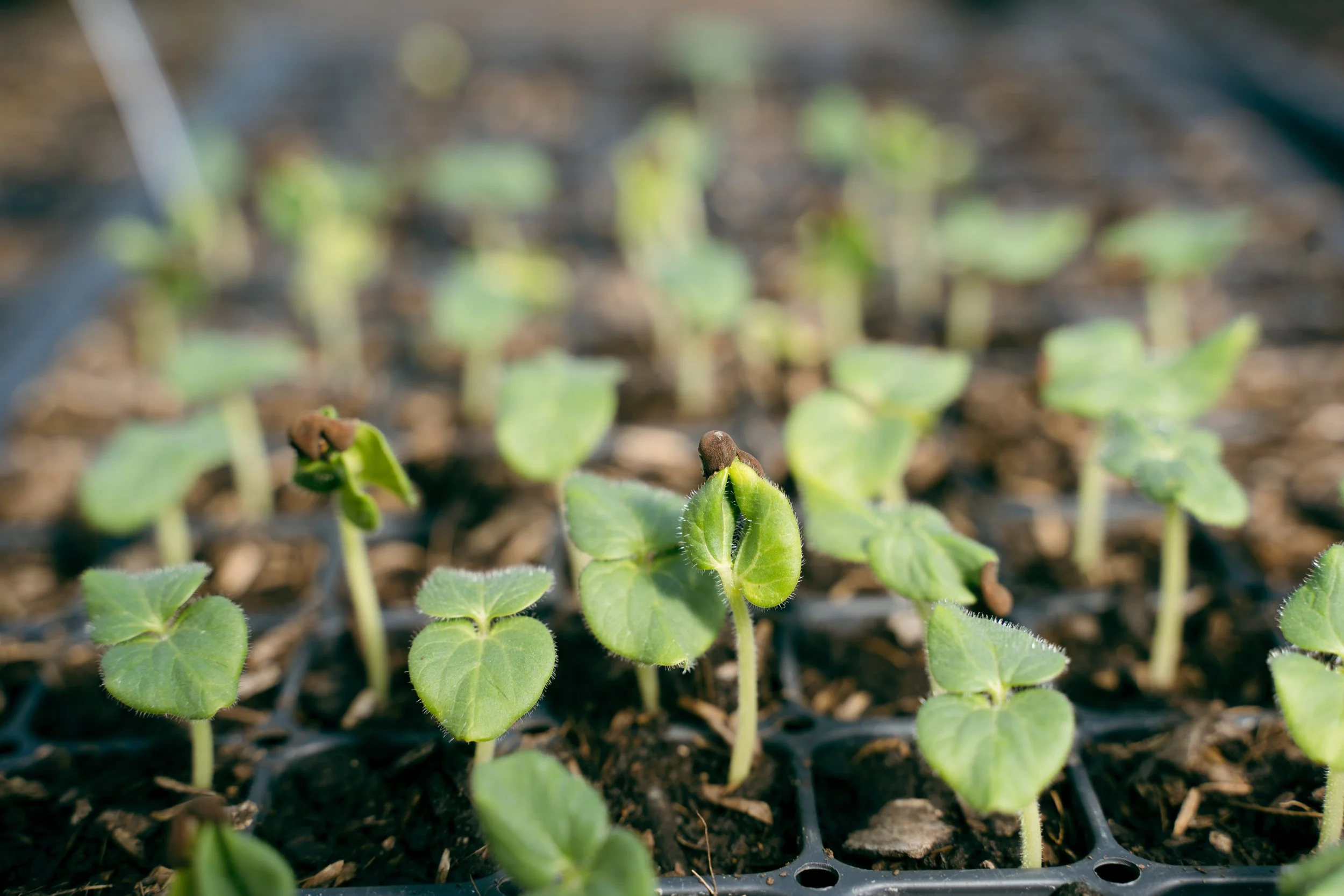
Small Rain Farm produces high quality vegetable, herb, flower and perennial seedlings for growers and gardeners.
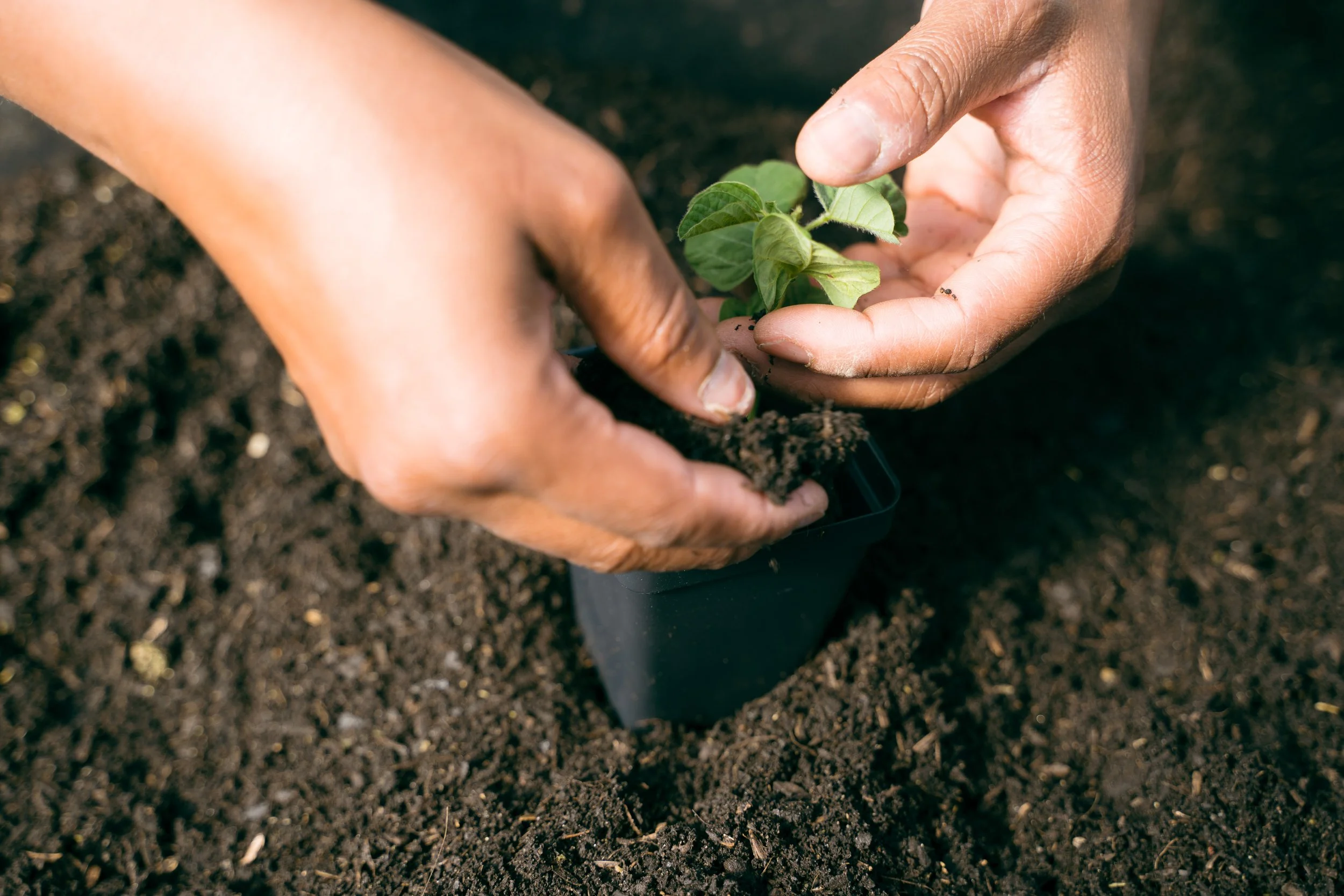
The 2026 seedlings list is here. Click below to see the varieties I’ll be offering this season. Stay tuned for a link for you to you order seedlings and seedling packages soon.
2026 Seedling List
DON’T SEE A VARIETY YOU LIKE?
WANT MORE THAN A FEW POTS, MAYBE MORE LIKE A FLAT FOR LARGER PLANTINGS?
Contact me for specialty plantings or larger quantities. With planning and notice, I can work with growers to grow out larger numbers of seedlings for a discounted price.
Email me (nikki@smallrainfarm.com) and let’s talk!
Our varietal selection consists of seeds that are primarily sourced from open-pollinated or organic or BIPOC seed growers in the North and Southeast U.S. We are also starting to grow out our own seed library, hoping to promote plants that are regionally adapted. In addition to some standard and non-traditional varietals, we focus on varieties that are culturally relevant to communities we are in relationship with.
Small Rain Farm exists to nurture the land, grow within community and live out ancestral agrarian possibilities.

Where can you find me during the season?
Eno River Farmers Market
in Hillsborough starting in late March
Black Farmers Market in Durham starting in April

